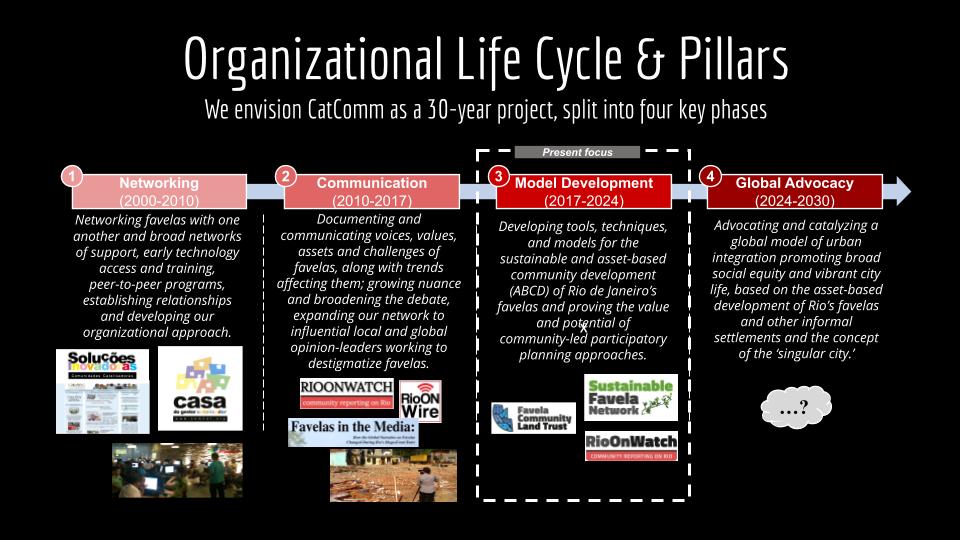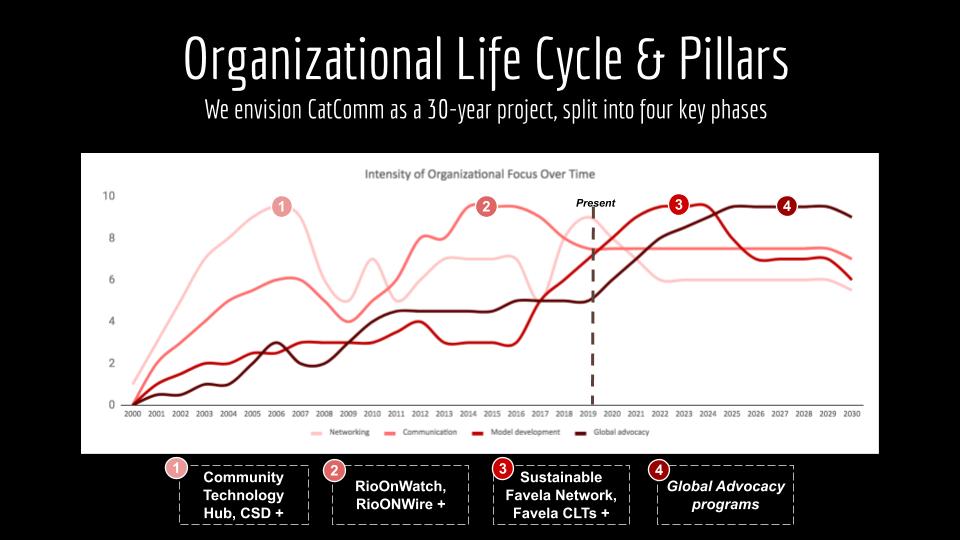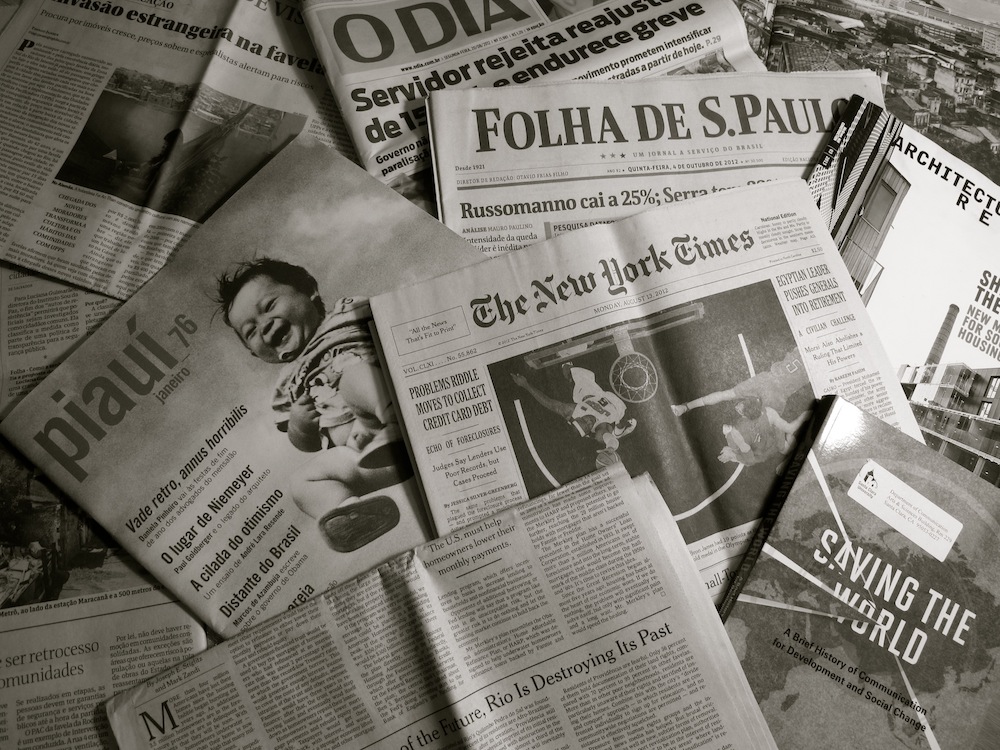CatComm’s Organizational Life Cycle
Catalytic Communities is here to perform a specific sequence of long-term activities that, together, will trigger the desired catalytic effect the organization was launched to produce.
Broadly speaking, these are the phases as we see them:
I. 2000-2010—Networking favelas with one another and strategic groups beyond through: early technology access and training for online networking, and building peer-to-peer support and knowledge-sharing networks online and through our community organizing hub in downtown Rio. Through these activities CatComm established strong relationships with communities and developed our organizational approach. We were recognized for this work by the Tech Museum and UN Habitat. Programs: Community Solutions Database, Casa Community Technology Hub.
II. 2010-2017—Shifting the narrative on favelas by: documenting and communicating voices, values, assets and challenges of favelas, along with trends affecting them, through our own and global media platforms; introducing growing nuance and broadening the debate to destigmatize favelas through campaigns, social media and influencing global thought-leaders. Programs: Strategic Use of Social Media Training, Community Journalism/Video Training, RioOnWatch, Perceptions Survey, Journalist Support, Olympic Media Analysis, University Tour. Seeds for Phase 3: ‘Favela as a Sustainable Model’ film, Vidigal Gentrification Debate series, Keys to Successful Resistance analysis, mobilization training assessment.
III. 2017-2024–Developing tools, techniques, and models for the sustainable and asset-based community development (ABCD) of Rio de Janeiro’s favelas through demonstration projects, while proving the value and potential of community-led participatory planning approaches in informal settlements. Programs: RioOnWatch II: Policy/solutions reporting, RioOnWatch Community Journalists’ Network, Sustainable Favela Network (mapping, exchanges, trainings, joint programs and implementing demonstration projects across communities), Sustainable Favela Indicator, establishing Favela Community Land Trusts and supportive legislation.
IV. 2024-2030—Advocating and catalyzing a global model of urban integration promoting broad social equity and vibrant city life, based on the asset-based development of Rio’s favelas and other informal settlements and the concept of the ‘singular city.’
Our goal is that by 2030, the concept of balancing informal and formal elements in order to achieve a commonsense, healthy, resilient and socially equitable form of urbanization will be widely accepted, and consolidated* informal settlements in Rio and beyond will be recognized and strengthened based on an asset-based community development approach.
*We refer to ‘consolidated favelas’ as those that due to community investment over time have reached a point in their development that their own residents see more value in staying and investing, than in receiving or pursuing alternative forms of housing. These communities tend to exhibit a number of sustainable attributes and cogent cultural qualities which should be recognized, strengthened, built on, and maintained.





